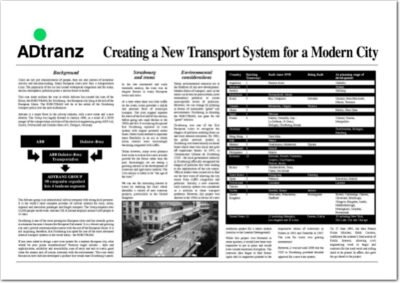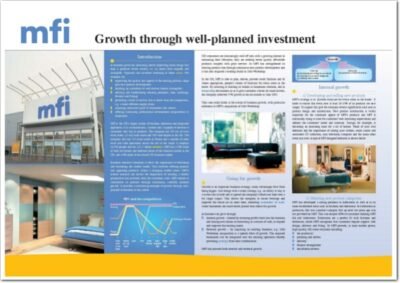Personal allowances are the amount of income that an individual can earn before they start paying income tax. In the UK, the personal allowance is set by the government and is typically adjusted annually. For the tax year 2021/2022, the personal allowance is £12,570.
This means that individuals can earn up to this amount without having to pay any income tax. It’s important to note that personal allowances can vary depending on an individual’s circumstances, such as age and income level. One key aspect of personal allowances is the ability to transfer them between spouses or civil partners in certain situations.
This is known as the marriage allowance, and it allows a non-taxpaying spouse or civil partner to transfer 10% of their personal allowance to their partner, as long as the receiving partner is a basic rate taxpayer. This can be a valuable way to reduce the overall tax bill for a couple, especially if one partner earns significantly less than the other. Personal allowances are an important aspect of the UK tax system, as they determine how much of an individual’s income is subject to taxation.
Understanding how personal allowances work and how they can be utilized is essential for individuals who want to minimize their tax liabilities and maximize their income. By being aware of personal allowances and their potential benefits, individuals can make informed decisions about their finances and take advantage of available tax-saving opportunities.
Key Takeaways
- Personal allowances are the amount of income you can earn before you start paying tax.
- Tax bands determine the rate at which your income is taxed, with higher rates for higher income levels.
- National Insurance Contributions (NICs) are payments made by employees and employers to fund state benefits.
- Maximizing personal allowances and tax bands can help minimize your tax liability.
- Calculating NICs involves considering your earnings and the specific NICs rates and thresholds.
Exploring Tax Bands
Tax Bands and Rates for 2021/2022
For the tax year 2021/2022, the basic rate tax band is £12,571 to £50,270, with a tax rate of 20%. The higher rate tax band is £50,271 to £150,000, with a tax rate of 40%. Any income above £150,000 falls into the additional rate tax band, with a tax rate of 45%.
Why Understanding Tax Bands is Important
It’s essential for individuals to understand which tax band their income falls into, as this will determine how much income tax they are required to pay. By knowing the different tax bands and rates, individuals can plan their finances more effectively and take advantage of any available tax-saving opportunities. For example, individuals may want to consider ways to reduce their taxable income or take advantage of tax relief options in order to minimize their tax liabilities.
Maximizing Income and Minimizing Tax Liabilities
Understanding tax bands is crucial for individuals who want to make informed decisions about their finances and ensure that they are not paying more tax than necessary. By exploring the different tax bands and rates, individuals can take steps to maximize their income and minimize their tax liabilities.
National Insurance Contributions: What You Need to Know

National Insurance contributions (NICs) are payments made by individuals and employers in the UK to fund state benefits and services, such as the state pension and healthcare. NICs are calculated based on an individual’s earnings and are payable by most working individuals aged 16 or over, as well as by employers. There are different classes of NICs, each with its own rules and rates, depending on an individual’s employment status and earnings.
It’s important for individuals to understand how NICs work and how they are calculated, as this will determine how much they are required to pay towards their national insurance contributions. By knowing the different classes of NICs and the rates that apply, individuals can plan their finances more effectively and ensure that they are meeting their national insurance obligations. Understanding national insurance contributions is essential for individuals who want to manage their finances effectively and ensure that they are contributing towards state benefits and services.
By knowing what is required in terms of NICs, individuals can make informed decisions about their finances and ensure that they are meeting their obligations.
Maximizing Personal Allowances and Tax Bands
There are several ways that individuals can maximize their personal allowances and make the most of the available tax bands. One strategy is to make use of any available tax reliefs and allowances, such as pension contributions or charitable donations. By taking advantage of these options, individuals can reduce their taxable income and potentially move into a lower tax band, thereby minimizing their tax liabilities.
Another way to maximize personal allowances and tax bands is through income splitting, particularly for married couples or civil partners. By transferring income-producing assets between spouses or civil partners, it may be possible to make use of both partners’ personal allowances and lower tax bands, resulting in overall tax savings for the couple. Additionally, individuals may want to consider timing their income in a way that allows them to make the most of their personal allowances and tax bands.
For example, if an individual expects a significant increase in income in a particular year, they may want to consider deferring some of that income to a later year in order to stay within a lower tax band. By maximizing personal allowances and making the most of available tax bands, individuals can effectively manage their finances and minimize their tax liabilities.
How to Calculate National Insurance Contributions
Calculating national insurance contributions (NICs) can be complex, as there are different classes of NICs with varying rules and rates. For employees, NICs are typically deducted from their earnings by their employer through the PAYE (Pay As You Earn) system. The amount of NICs deducted depends on an individual’s earnings and their class of NICs.
For self-employed individuals, NICs are calculated based on their profits from self-employment. The amount of NICs payable will depend on the class of NICs that applies to the individual’s circumstances. It’s important for self-employed individuals to keep accurate records of their earnings and expenses in order to calculate their NICs correctly.
Employers also have responsibilities when it comes to calculating and paying NICs for their employees. They must ensure that they are deducting the correct amount of NICs from their employees’ earnings and paying these contributions to HM Revenue & Customs (HMRC) on time. Understanding how to calculate national insurance contributions is crucial for individuals who want to ensure that they are meeting their obligations and contributing towards state benefits and services.
By knowing how NICs are calculated and paid, individuals can manage their finances effectively and avoid any potential penalties for non-compliance.
Changes in Personal Allowances and Tax Bands

Personal allowances and tax bands are subject to change each year, as they are typically adjusted by the government in line with inflation and other economic factors. It’s important for individuals to stay informed about any changes to personal allowances and tax bands, as these adjustments can have a significant impact on their finances. For example, an increase in the personal allowance means that individuals can earn more income before they start paying income tax.
This could result in lower tax liabilities for many people, allowing them to keep more of their hard-earned money. Similarly, changes in tax bands can affect how much income is subject to different rates of taxation. For instance, if the higher rate tax band is widened, more individuals may find themselves paying tax at the higher rate, potentially increasing their overall tax liabilities.
By staying informed about changes in personal allowances and tax bands, individuals can make informed decisions about their finances and take advantage of any available tax-saving opportunities.
Tips for Managing National Insurance Contributions
Managing national insurance contributions (NICs) effectively is important for individuals who want to ensure that they are meeting their obligations while minimizing their costs. One tip for managing NICs is to keep accurate records of earnings and expenses for self-employed individuals. This will help ensure that NICs are calculated correctly and that any available reliefs or exemptions are claimed.
Another tip is for employers to stay up-to-date with changes in NICs rates and rules in order to ensure that they are deducting the correct amount from their employees’ earnings. Employers should also make sure that they are paying these contributions to HM Revenue & Customs (HMRC) on time to avoid any potential penalties. For employees, it’s important to review their payslips regularly to ensure that the correct amount of NICs is being deducted from their earnings.
If there are any discrepancies or concerns about NICs deductions, employees should raise these with their employer or HMRC as soon as possible. By following these tips for managing national insurance contributions, individuals can ensure that they are meeting their obligations while minimizing any potential costs or penalties associated with non-compliance. In conclusion, understanding personal allowances, tax bands, and national insurance contributions is crucial for individuals who want to manage their finances effectively and minimize their tax liabilities.
By staying informed about these key aspects of the UK tax system and taking advantage of any available opportunities for tax-saving, individuals can make informed decisions about their finances and ensure that they are meeting their obligations while maximizing their income.
If you’re interested in learning more about personal finances and tax implications, you may want to check out this article on the pros and cons of taking out a personal loan. Personal loans can be a useful tool for managing finances, but they also come with their own set of risks and considerations. Understanding the potential impact on your income tax, personal allowances, tax bands, and national insurance contributions is crucial when making financial decisions. Learn more here.
FAQs
What is an income tax?
Income tax is a tax imposed by the government on individuals and businesses based on their income or profits.
What are personal allowances in income tax?
Personal allowances are the amount of income an individual can earn before they start paying income tax. The allowance is set by the government and can vary depending on the individual’s circumstances.
What are tax bands in income tax?
Tax bands are the different income ranges that are subject to different tax rates. In the UK, for example, there are different tax bands such as the basic rate, higher rate, and additional rate.
What are National Insurance contributions?
National Insurance contributions are payments made by individuals and employers to fund state benefits such as the state pension, unemployment benefits, and sickness pay. The contributions are based on the individual’s earnings.
 Continuous improvement within an organisation (MP3)
Continuous improvement within an organisation (MP3)  Building brand equity (PDF)
Building brand equity (PDF)  Creating a new transport system (PDF)
Creating a new transport system (PDF)  Growth through well-planned investment (PDF)
Growth through well-planned investment (PDF) 